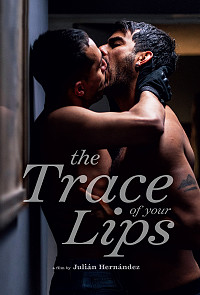| SHADOWS ON THE WALL | REVIEWS | NEWS | FESTIVAL | AWARDS | Q&A | ABOUT | TALKBACK | |||||||||||||
 Shadows off the beaten path Shadows off the beaten pathIndies, foreign, docs and shorts...
On this page:
THE TASTE OF THINGS |
THE TEACHERS' LOUNGE |
THE TRACE OF YOUR LIPS
| |||||||||||||
| See also: SHADOWS FILM FESTIVAL | Last update 21.Dec.23 | |||||||||||||
|
The Taste of Things La Passion de Dodin Bouffant Review by Rich Cline | 
| |||||||||||||
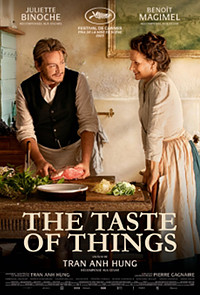 dir-scr Anh Hung Tran prd Olivier Delbosc with Juliette Binoche, Benoit Magimel, Galatea Bellugi, Bonnie Chagneau-Ravoire, Emmanuel Salinger, Patrick d'Assumcao, Jan Hammenecker, Frederic Fisbach, Jean-Marc Roulot, Mhamed Arezki, Sarah Adler, Yannik Landrein release UK Oct.23 lff, Fr 8.Nov.23, US 13.Dec.23 23/France Gaumont 2h25 CANNES FILM FEST   Is it streaming? |
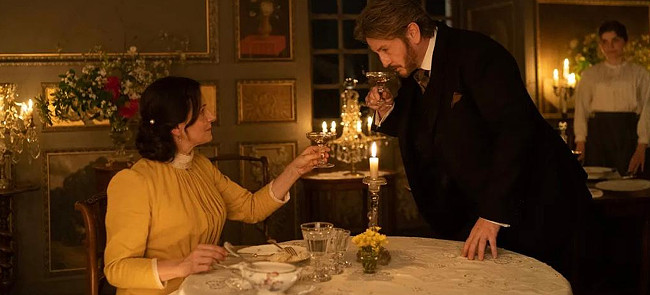 It's perhaps wise to eat before watching this food-filled French romance. And even then, the film will keep your mouth watering for two and a half delectable hours. This is an ode to the artistry of cooking, with a quietly understated love story as a main course. Luxuriantly produced and beautifully observed by writer-director Anh Hung Tran, the film layers subtle social-status humour alongside the sensory onslaught. A well-respected cook in a late 19th century chateau, Eugenie (Binoche) has worked for two decades for wealthy gastronome Dodin (Magimel), who plans the epic gourmet meals that she cooks to impress his posh, food-obsessed friends. Their assistant Violette (Bellugi), introduces her young niece Pauline (Chagneau-Ravoire) to the kitchen, and she shows a naturally gifted palate. Meanwhile, Dodin once again asks Eugenie to marry him. But she's happy with their relationship as it is. And after a prince (Arezki) serves Dodin an overwrought 8-hour meal, he counters that by serving the prince a simple pot-au-feu. Sizzling meats, steaming vegetables and simmering sauces fill the scene, as most shots depict food being cooked or eaten. While the women take their meals between courses in the kitchen, Dodin joins his haughty friends in the dining room, where they savour each mouthful while chatting about their favourite dishes and the history and future of fine cuisine. Running alongside this is the sweet account of Eugenie and Dodin's love story, which takes an emotional turn. Binoche's effortless presence makes Eugenie magnetic. She knows her skill but deflects the idea that she's an artist. Rather than join them in the dining room, she prefers to talk to men through the food she prepares. In other words, she knows who she is and who she wants to be. This informs her chemistry with Magimel, which surges between the lines, then blossoms when Dodin cooks her a meal when she's under-the-weather. Her mysterious fainting spells provide a dark counterpoint in the narrative. "Man is the only animal that drinks without thirst," says one diner as he raises his wine glass. Set among the top echelon of society at a luxuriant period in history, this film celebrates fine cuisine without question, so it feels somewhat detached from reality. But the story is moving and intriguing, connecting the love of food with the reason to live. It feels perhaps undercooked for such a languorous running time, but its gentle pace and depth of feeling are welcome at a time when most movies seem to be in a rush.
| ||||||||||||
|
The Teachers’ Lounge Das Lehrerzimmer Review by Rich Cline | 
| |||||||||||||
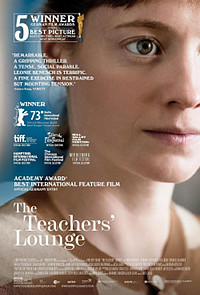 dir Ilker Catak prd Ingo Fliess scr Johannes Duncker, Ilker Catak with Leonie Benesch, Leonard Stettnisch, Eva Lobau, Michael Klammer, Anne-Kathrin Gummich, Kathrin Wehlisch, Sarah Bauerett, Rafael Stachowiak, Can Rodenbostel, Vincent Stachowiak, Elsa Krieger, Oskar Zickur release Ger 4.May.23, US 25.Dec.23, UK Feb.24 23/Germany 1h38 BERLIN FILM FEST TORONTO FILM FEST  Is it streaming? |
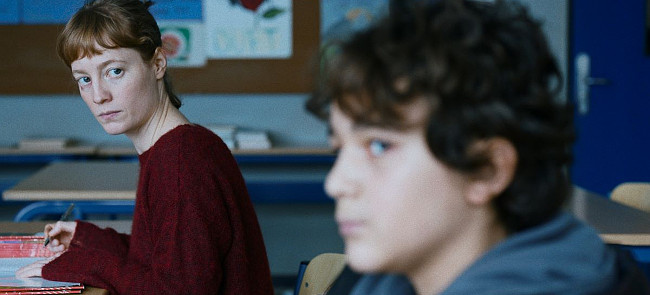 Watching this German school drama shift from inspirational into a rather dark dramatic thriller is deeply unnerving. Filmmaker Ilker Catak cleverly keeps the audience close to the teacher at the centre of the storm as her entire sense of identity is shattered by rumours and suspicions. The script maintains such a superb sense of complexity that it's impossible to call anyone a villain, including characters who behave rather badly. When school officials jump to the conclusion that German-Turkish 12-year-old Ali (Rodenbostel) is behind a series of thefts, his brightly optimistic teacher Carla (Benesch) is deeply troubled by their seemingly unconscious racism. And her own stealthy investigation reveals administrator Friederike (Lobau) as the culprit. But this unleashes a range of problems with her boss Dr Bohm (Gummich) and fellow teachers. And this extends to the entire student body, which is annoyed no one is telling the truth. Meanwhile, Friederike's son Oskar (Stettnisch), who is Carla's star student, is caught in the middle of it all. As the intensity grows around Carla, the film develops a riveting pace that's cleverly disorienting and upsetting, effectively putting us in her shoes. The camera stays very closely with Carla right through the film, strongly establishing her perspective and motivation before forcing her to question both of them herself. It's a remarkably assured way to tell a story that pushes the audience to take a side, even as things become increasingly slippery. So Carla's sense of helplessness is powerful. Benesch is terrific in a very difficult role, as Carla's sunny positivity is challenged and then crushed by a series of attacks, mainly verbal but also a physical one that leaves her with a literal and metaphorical black eye. In Benesch's expressive face, the toll this series of events takes on this young woman becomes clear, as does her determination to be a positive influence in her students' lives. The adults and children around her are played with sharp authenticity, with Stettnisch particularly impressive as the pressurised Oskar. This is much more than an exploration of cancel culture; it's a look at the very nature of truth, how facts can be twisted and that perhaps in some cases the facts alone can't tell the story accurately. As this fraught situation evolves to encompass the entire school and the students' parents, there are hints that something more important is driving everything. But Catak cleverly resists giving us an omniscient viewpoint, requiring us to think things through on our own.
| ||||||||||||
|
The Trace of Your Lips La Huella de Unos Labios Review by Rich Cline | 
Is it streaming?
| 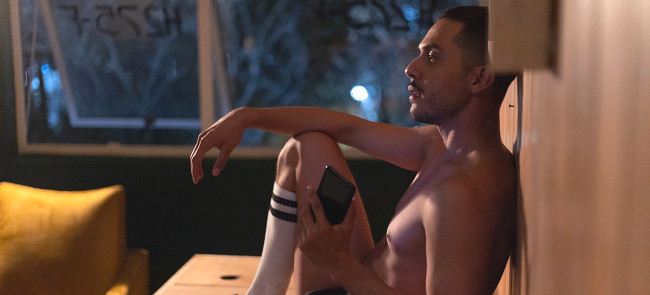 Inventively playing with issues surrounding masculinity, Mexican filmmaker Julian Hernandez tells another evocative, sensual story about men seeking love. Beautifully shot and edited, the film takes the viewer on an odyssey that knowingly explores issues of isolation, loneliness and unexpected connections. While the film is set during the pandemic, Hernandez uses clever touches that keep the story fresh and insightful, making knowing connections with bigger themes. As an actor, Roman (Catalan) is known for starring in B-movies like the hilariously cliched crime thriller Human Trash, Beware! Meanwhile, his neighbour Aldo (Rico) searches for intimacy with guys he meets in the park nearby. Then Covid traps them alone in their flats; Roman can't work and Aldo loses his job. A year later, with the Mexican military still patrolling the streets, Roman is bored alone while Aldo survives by posting erotic videos. Then they meet online and begin talking. Tired of using their imaginations, they're tempted to break lockdown rules and meet up. Opening with an extended clip from Roman's violent movie, Hernandez gleefully pokes fun at homoeroticism in genre movies, then breaks the fourth wall as the manly leading man (Catalan) is spotted on a gay hookup app. Later when Aldo picks up a tattooed boy in the park, his use of a knife as he videotapes their encounter offers a jolt of fear even though it's harmless. And with the virus raging, conversations turn to staying safe and being tested, echoing another pandemic. Performances are remarkably introspective, as both Catalan and Rico ground their characters in their real-world situations. This is skilfully contrasted in Roman's film scenes, or when they imagine meeting up rather than just looking at each other across the complex from their respective apartments. Some of these scenes are amusingly played as pastiche porn moments, while the strict isolation, illness and protective gear are knowingly heightened through perspective. Never flinching from depictions of sexuality or nudity, Hernandez is able to explore ideas about intimacy in remarkably effective ways. Both Roman and Aldo had become used to mindless encounters before lockdown, and being unable to meet in person forces them to connect mentally and emotionally. A sudden plot point in the final act feels a bit contrived and undercooked. This leads to a wistful sequence that's lovely but eerily unsatisfying, even as it makes an emotionally pointed comment on the film's key themes.
| 
See also: SHADOWS FILM FESTIVAL © 2023 by Rich Cline, Shadows
on the Wall
HOME | REVIEWS | NEWS | FESTIVAL | AWARDS
| Q&A | ABOUT | TALKBACK | | ||||||||||


